DİYARBAKIR, Turkey—Turkey’s Kurds were once regarded as the country’s “kingmakers.” But even their support for President Recep Tayipp Erdoğan’s opponent wasn’t enough to keep the incumbent from his third decade in power.
With more than 99 percent of ballots counted Sunday night, Erdoğan came away with some 52 percent to opposition challenger Kemal Kılıçdaroğlu’s 48—a narrow but decisive victory in an election that just a few months ago some pollsters thought Erdoğan could lose by 10 points.
“This outcome, like any other decision made by our people, holds great significance. However, the victory is not ours alone; it is Turkey’s triumph,” the president said Sunday night, declaring victory from his presidential palace in Ankara. “As you may recall, we have always asserted that when we win, no one in our country will suffer a loss. Likewise, when we succeed, the only losers will be those behind the nefarious plots against our nation, including their accomplices, the terrorist organizations and loan sharks.”
Early results indicate Erdoğan’s win came in large part thanks to his ability to cement his nationalist bona fides on the campaign trail, attacking his rival for receiving support from Kurdish groups and other perceived enemies of the state. Now the prospect of peace in the conflict between Kurdish separatist groups and Turkish forces that has killed more than 40,000 people in four decades—civilians and combatants alike—is as bleak as ever.
Erdoğan’s current approach to Turkey’s Kurds, about 20 percent of the total population, is very different from when he first entered national politics. Indeed, during his early days in office, Erdoğan presented himself as a peacemaker in the long-simmering ethnic conflict.
In a 2005 tour of the country’s southeastern provinces, then-Prime Minister Erdoğan met with Kurdish thinkers and political leaders, extending olive branches in places his secular predecessors had long shunned. Speaking in August 2006 from Diyarbakır—Turkey’s largest majority-Kurdish city— he acknowledged, in a first for a Turkish leader, the country’s “Kurdish problem.” In 2012, Erdoğan’s government kicked off peace talks with the Kurdistan Workers’ Party (PKK), reaching a fragile truce with the militant group a year later.
Not everyone bought that the president was acting in good faith. “Erdoğan has always tried to use the ‘Kurdish Question’ as a tool to dominate, to manipulate people, and to consolidate his power,” said Sezgin Tanrıkulu, a newly elected MP representing Diyarbakır for Kılıçdaroğlu’s Republican People’s Party and a career human rights lawyer, known for his defense of Turkey’s Kurds. “The first peace process was just a way to put his political goals into practice.”
Indeed, the calm was short-lived. Early in the negotiations, rumors spread that Erdoğan had been arming the Islamic State to fight Kurds amid the civil war in neighboring Syria. Outrage culminated with the 2014 ISIS offensive in Kobani, a Kurdish city in northern Syria. As hundreds of thousands of Kurdish refugees crossed the border from Syria to recount the scenes of horror, Turkey’s Kurds began protesting and attempting to cross the border to join Syria’s Kurdish fighters. The Turkish government met both with force.
“We never had a Kurdish problem in this country,” Erdoğan said in March 2015, signaling the effective end to peace talks he’d worked so hard to spearhead.
Riots, bombings, and politically motivated killings quickly swept the southeast as the peace process came to an abrupt end. Around the region including here in Diyarbakır—the Turkish Kurds’ de facto capital—local fighters declared self-rule and blocked off neighborhoods after the ceasefire broke. Turkish security forces responded swiftly and brutally, calling for civilians to leave the areas before laying siege with tanks and other armored vehicles. Hundreds were killed in the fighting, deaths that the PKK says were civilian and the Turkish government says were militant.
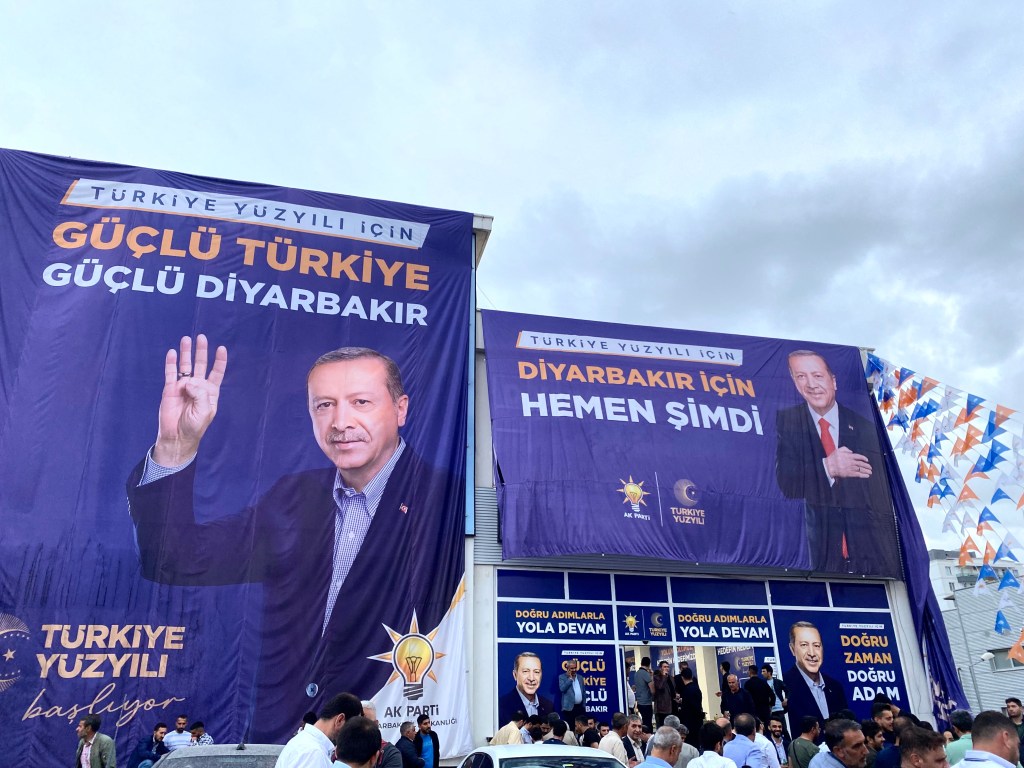
Today, new construction in Diyarbakır belies the urban warfare that flattened the center of this medieval city just seven years ago. In a stone alleyway abutting the old city walls, kabob vendors call to tourists where Turkish security forces and Kurdish separatists once clashed in a monthslong siege between 2015 and 2016. Rows of new houses on the city’s edge pepper a onetime battlefield.
Meanwhile, in Turkey’s largest cities of Istanbul and Ankara, a series of PKK terrorist attacks in the same period further turned the Turkish public from the prospect of reconciliation. And the violence coincided with one of Erdoğan’s first electoral letdowns as his Justice and Development Party (AKP) lost its parliamentary majority in the 2015 elections, bleeding seats to the pro-Kurdish Peoples’ Democratic Party (HDP). Sensing the country’s direction and in need of new political allies, Erdoğan began to lean into the distinct variety of Islamo-nationalism that’s come to define him some eight years later.
His first order of business was gutting the HDP’s political structures—locally, by removing (and often jailing) municipal officials and replacing them with hand-selected “trustees,” and nationally, by weaponizing the judiciary against the party and its leader. In this month’s parliamentary elections, HDP politicians had to run under a new party banner—the Green Left Party (YSP)—to avoid being shut down. Kurdish civil society was also targeted.
“A great number of television channels, radio stations, and newspapers were closed. A large number of politicians were taken into custody and imprisoned, some of whom are still in jail,” Mehmet Emin Aktar, a YSP politician and former head of the Diyarbakır Bar Association, told The Dispatch. Asked if Turkey’s Kurds are likely to face renewed persecution given their support for Erdoğan’s opponent, he replied without hesitation: “No doubt.”
“Whoever’s against Erdoğan becomes a terrorist,” said Kamil Ayhan, a Kurdish man from a Diyarbakır polling station. “We’re tired of it.”
Such accusations allow the president to shore up support against internal and external threats—a winning strategy in a country with a historical memory of both insurgencies and imperialism. The goal is to restore “Great Turkey,” Erdoğan tells voters as he picks fights with friends and foes alike. “Erdoğan’s using the same polarizing language against neighboring countries, European countries, and the U.S. as he does inside Turkey itself,” Cevdet Nasıranlı, chief adviser to Kılıçdaroğlu, said in an interview Sunday.
But the president and his allies insist the often erratic foreign policy has a strategy behind it: “Independence.”
“We support healthy relations between the United States and Turkey, and Turkey and European countries,” Galip Ensarioglu, the AKP’s deputy chair in Diyarbakır, said from the party’s bustling local headquarters Sunday evening. “We are against the master and his slave—we are against these kinds of relationships. They are not our master and we are not their slave. They don’t have any superiority over us.”
Sunday’s election marked a triumph over Western media and ushered in “the century of Turkey,” Erdoğan told supporters during his victory speech.
“Before Erdoğan, Turkey was like a third-world country that could be ruled by European countries, by the United States,” said Muhammet Şerif Aydın, the AKP’s Diyarbakır chair. “The United States shouldn’t underestimate our role in the world. It shouldn’t view us like a third-world country in Africa.”
Ironically, Turkey’s turn away from one “great power” has been accompanied by its shift toward another: Russia. But Erdoğan and his party don’t see that as antithetical to the country’s policy of strategic autonomy.
“If we have two choices, to drink our coffee in Moscow or to drink it in Los Angeles, we prefer to drink our coffee in Los Angeles,” Aydın said. “But if the coffee in Los Angeles is not sweet, then we will choose to drink our coffee in Moscow, where it’s sweeter.”
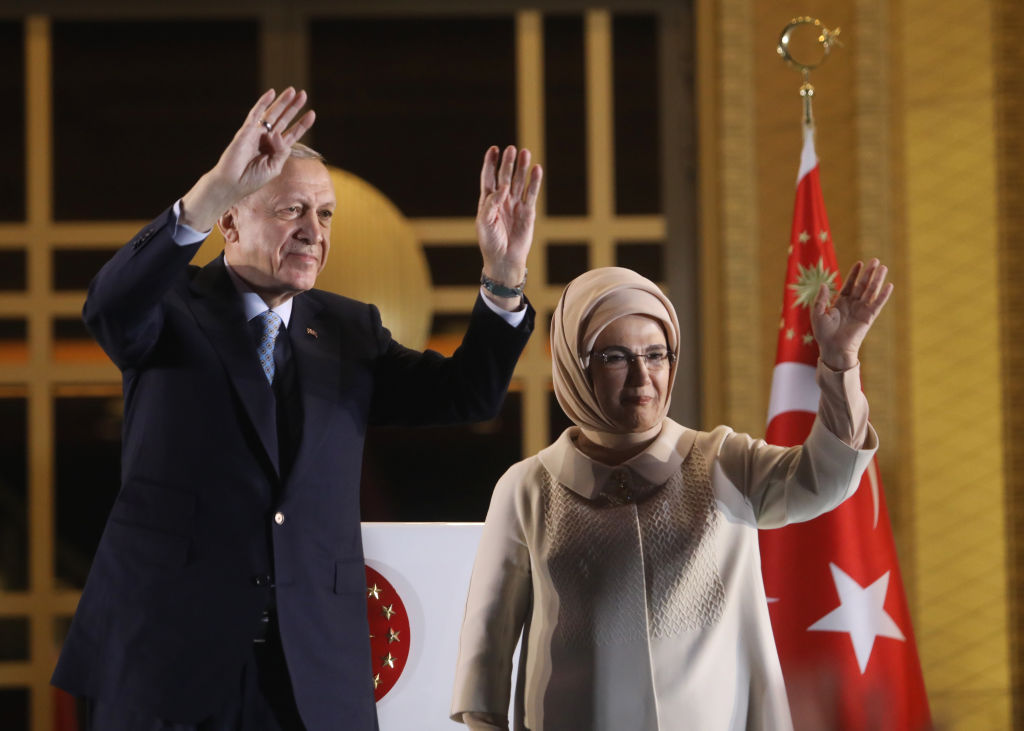

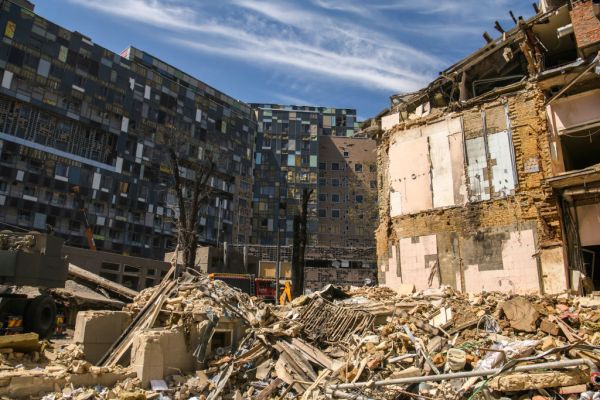
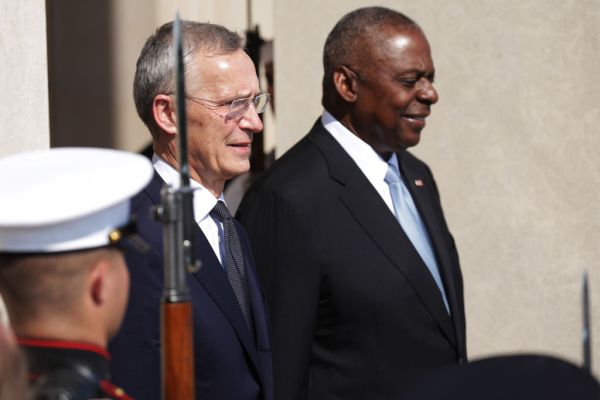
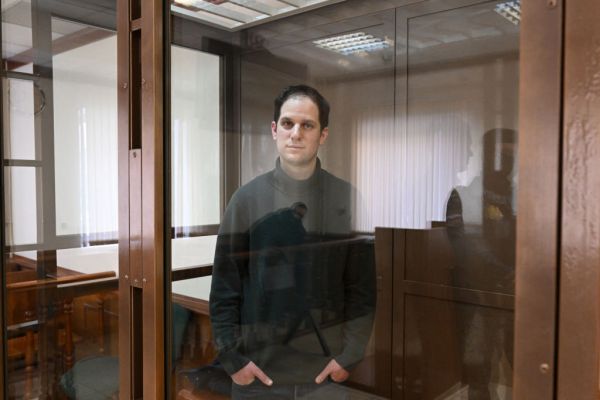




Please note that we at The Dispatch hold ourselves, our work, and our commenters to a higher standard than other places on the internet. We welcome comments that foster genuine debate or discussion—including comments critical of us or our work—but responses that include ad hominem attacks on fellow Dispatch members or are intended to stoke fear and anger may be moderated.